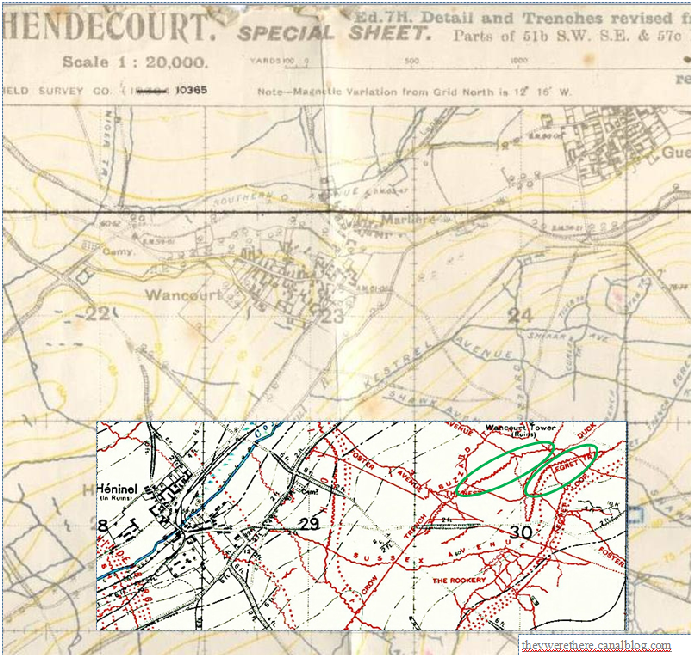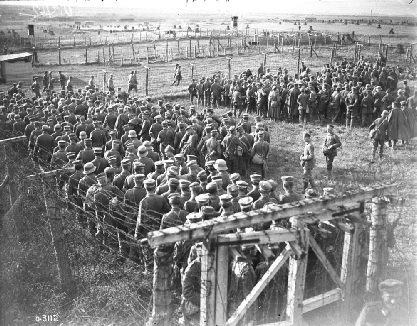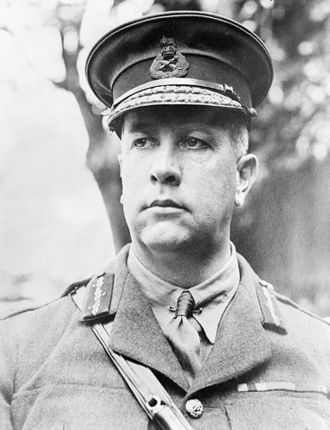
The War Diary of Lieutenant William L Hayes M C
1915—1919

1918 26 August– 3 September
2nd Battle of Arras (Battle of Scarpe)
Mopping Up is an Army term for clearing out any small pockets of resistance left behind after an advance. This was delegated to a company or platoon, depending on the size of the battlefield. It meant entering seemingly deserted or defeated machine gun posts, trenches and dug outs to either capture or dispatch enemy left behind -
Prisoners were disarmed, identified, and sent to the rear to collection areas known as cages—usually surrounded by barbed wire and guarded. Officers were separated from the ordinary ranks. The latter were more talkative than the former and more likely to give useful information. In due course they would be fed and/or given medical attention then sent to prisoner of war camps. The degree of humane treatment varied.
This was the general procedure for all sides in the war.



General Sir Arthur Currie, GCMG, KCG
General Currie was the senior commander of the Canadian Army in this war. He began at the lowest rank of the militia as a gunner and was known by the end of the war as one of the most able commanders on the Western Front. He took command of the entire Canadian Corps after the Battle of Vimy Ridge.
He led the Corps through the capture of Hill 70, Lens and into Passchendaele and then successfully through Canada’s Hundred Days 8 August -
In December 1918, he insisted that the contribution of Canadian Forces to the success of the Hundred Days be recorded and made public.
Knowing that by now the German Forces were becoming exhausted and import blockades in place since the beginning of the war were having an effect on the civilian populations as well as the military, it was an opportune time to press forward strongly.
Operation Michael of March 1918 when Germany had attacked and taken much of the western front, meant that there was a great deal to do to regain it and to continue efforts towards Germany. Canadians were sent to take the Arras sector from Neuville -
The objective was to secure a line just west of Monchy-
A sugar factory south of Neuville-
The 2nd Division was on the right of this advance from Neuville-
28th Bn WD: 30 Aug Having had little or no rest for several days, the Bn was withdrawn to Wailly south of Arras